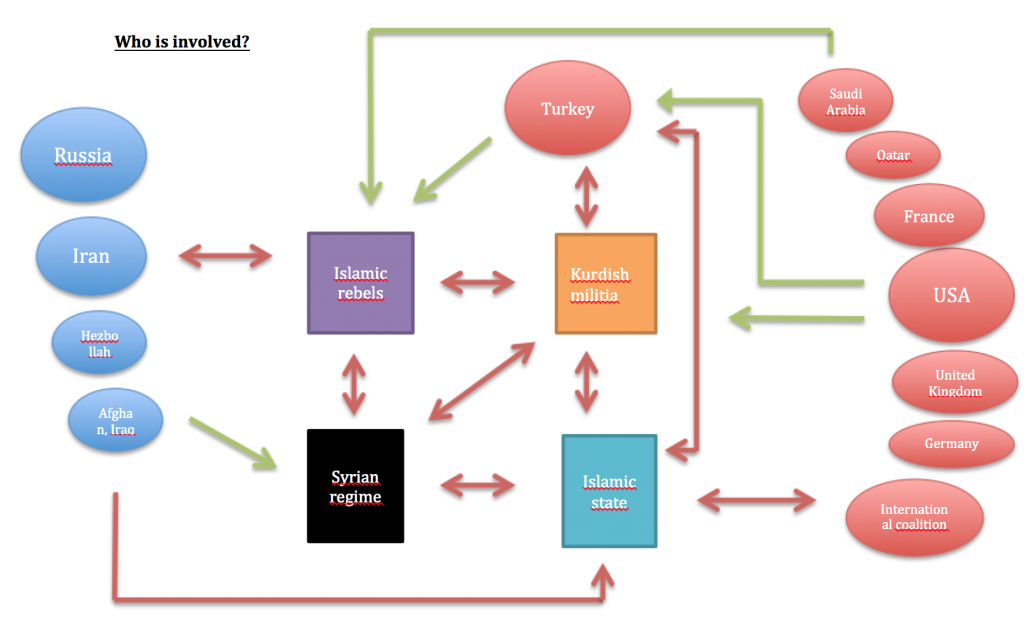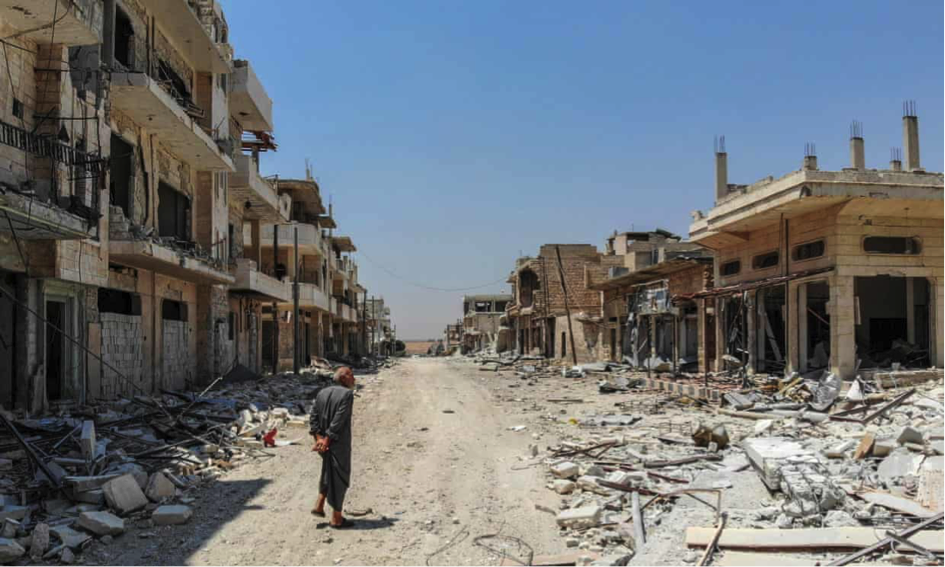It is not a secret that many people in Germany are afraid of the refugee flow. They are afraid of refugees taking away their jobs and then eventually the German population as we know it will cease to exist. They are afraid of the Isis who might invade with the refugee flow. They are afraid that the clash of different religions entails potential violence. Therefore, many Germans think their home country is under a threat. One consequence is that the right wing party has increased dramatically.
But their fear is reasonable! News channel repeatedly bring reports about the violence in the refugee camps. On a daily basis Germans are exposed to a falsely negative picture of the refugee. Politicians do their best to strengthen the negative picture:
German politician Björn Höcke, head of the Alternative for Germany (AFD) said, “Let’s not forget, the Syrian who comes to us, has still his Syria”. “The Afghan who comes to us has still his Afghanistan […] But if we lose our Germany, then we have no more home!”
How aware are we of the circumstances in Syria? Under which conditions is it appropriate to accept refugees?
A summary about the history of the Syria crisis
The causes of the fight
Since 2011 violence dominates Syria. Almost nothing has changed except the decrease of fatality. It all started when peaceful demonstrations against Baschar al-Assad were brutally repressed by the military. Out of this event a very complex civil war originated. The causes for the conflict were the brutal regime, social inequality, poverty, nepotism and confessional tensions.
A key event happened in Daraa when children got tortured because they wrote dissident slogans on walls. As a consequence people protested but Assad`s regime made use of poison gas and chemical weapons against his own people. Therefore, people started grabbing weapons because they were convinced peaceful resistance is pointless. Out of this movement rebels arose and many horrible fights took place and are still taking place between the rebels and the Syrian government forces. Throughout the last eight years many nations got involved because of their own interests in Syria and made the complexity of the civil war perfect. It is almost impossible to keep a clear overview about all the alliances.

Supporter Assad’s
Iran: Iran is the most important alliance partner. Supports Syria with billions of dollars. Iran provides tank ships for the oil supplies, weapons and militias. They also want to save their power in Syria. Both nations are anti western oriented in political terms.
Iraq: Also wants to save power.
Russia: Russia has ambitions to be a great nation. Putin`s power seems great by intervening in the Syria crisis. Russia seems at eye level with USA because when it comes to negotiation the west has to consider the interests of Putin. Assad is Putin`s ally in Syria and Putin would lose his influence in Syria without him. In addition he wants to save his naval base to demonstrate his military power. Hezbollah
Opponents of Assad
USA: Wants Assad to resign his function, so that a pro western government will have the power. USA supports rebels who are not radical Islamists. Gulf states: Want Islamic Syrian rebels to have the power in Syria. They support the rebels but out of these militias the Islamic state has developed. Turkey: Wants Sunni Syrian rebels to have the power in Syria. It is even assumed that Turkey supported Islamic state.
Others
ISIS: Wants to abolish Syria and erect caliphate worldwide. The terror group was founded after the US invasion in Iraq. The Al Qaida organized it. PKK:Kurdistan Workers` Party.
Who controls what?

Life in Syria

Referring to the statement of the German politician. I don’t know where I should start. The living conditions in Syria are disastrous. Everything is destroyed, people lost their homes, there is no clean water and the war is continuing. Jail, torture and bereavement are normal. If Germany would be in this condition I would have my doubts if he would like to go back to Germany even though it is still there.
I think he would be happy when a country would permit his stay.
I mentioned already that I understand the fear of the people in Germany but I want them to be aware of the suffer refugees go through and that you should be careful about the information in the media. It can falsely give you a wrong picture.
But under which circumstances is it appropriate to accept refugees?
At what level is the threshold of suffering reached, so that is appropriate to accept refugees?
Think about it!




Recent Comments